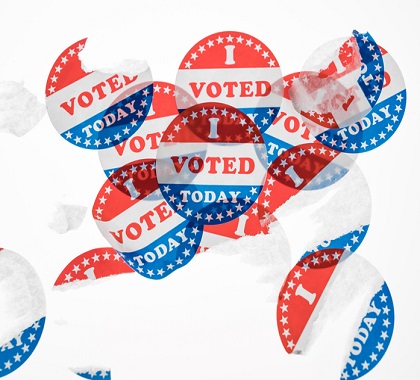Chairwoman Kaiser and members of the committee:
Thank you for taking the time today to discuss voter identification in elections. My name is Arianna Wilkerson. I am a state government relations manager at The Heartland Institute. Founded in 1984, Heartland is an independent, nonprofit organization whose mission is to discover, develop, and promote free-market solutions to social and economic problems. We focus on providing national, state, and local elected officials with reliable and timely research and analyses on important policy issues. I submit this testimony in support of House Bill 992.
Since the early 2000s, increasingly more states (including some with Democratic majorities) have adopted photo and non-photo voter identification requirements at polls. This trend took off in 2005, after the Federal Election Reform Commission made a bipartisan recommendation for voter identification. Over the past two decades, the number of states without voter ID requirements has dwindled. Currently, Maryland remains one of 16 states that have not enacted any voter ID requirements.[1] Fortunately, H.B. 992 would change that.
H.B. 992 would permit election judges to request photo identification from an individual in order to properly confirm the identity of the voter. The voter could present a variety of IDs, including a driver’s license, state-issued ID, military ID, or tribal ID. Under current statute, Maryland only asks for a voter’s birthdate (and address under certain circumstances) and then compares that information in the election register. Not requiring any form of identification leaves Maryland particularly vulnerable to election fraud.
Although relatively rare, election fraud is a crime that has been documented throughout this nation’s history. In recent years, researchers have uncovered irregularities in voter databases that may indicate fraud being committed. In 2012, the Pew Center on the States found nearly one in eight voter registrations in the country were either invalid or significantly inaccurate. About two million people registered were deceased and almost three million people were registered in multiple states.[2]
Similarly, researchers at the Government Accountability Institute (GAI) examined the 2016 presidential election voter rolls of 21 states, including Maryland. Using an extremely conservative methodology, they found more than 15,000 clearly prohibited addresses on voter registrations—addresses such as post office boxes, public buildings, federal post offices, and even UPS stores. GAI also discovered more than 8,000 cases in which duplicate voting is highly likely to have occurred. Extending GAI’s method to include the rolls of all 50 states would indicate at least 45,000 cases of duplicate voting.[3]
Critics of voter identification laws typically claim such laws suppress voter turnout or disenfranchise disadvantaged populations. However, this month, professors at the University of Bologna and Harvard Business School published a working paper in which they concluded “strict ID laws have no significant negative effect on registration or turnout, overall or for any subgroup defined by age, gender, race, or party affiliation.” To reach this conclusion, the professors examined elections from 2008 to 2016 across 30 states and observed voter behavior in those states before and after strict ID laws were implemented.[4]
It should also be noted that H.B. 992 would issue state ID cards free of charge to seniors, the disabled, and anyone 18 years or older. If an individual were to fail to present proper identification at the polling place, he or she would be given a provisional ballot that would eventually be reviewed and counted by election officials. No one would be denied the right to vote.
As of February 2019, a total of 34 states have laws requiring or, at the very least, requesting voters to show some form of photo or non-photo identification. And this is not a partisan issue. From east to west and north to south, in “red” states such as Alabama and “blue” states such as Delaware, more than half the states have some form of voter identification laws on the books.
Often election results, especially at the state and local levels, are decided by a handful of votes. Sometimes, they come down to just one vote. Thus, it is vital to the integrity of our democracy that our election system be as error-free and fraud-free as possible.
Voter ID laws alone cannot ensure free and fair elections, but they are a positive step in the right direction. I hope the committee considers passing this bill, because Marylanders deserve to know their elections are of the highest integrity.
[1] “Voter ID History,” National Conference of State Legislatures, May 31, 2017, http://www.ncsl.org/research/elections-and-campaigns/voter-id-history.aspx
[2] “Inaccurate, Costly, and Inefficient: Evidence That America’s Voter Registration System Needs an Upgrade,” The Pew Center on the States, February 2012, https://www.pewtrusts.org/~/media/legacy/uploadedfiles/pcs_assets/2012/pewupgradingvoterregistrationpdf.pdf
[3] “America The Vulnerable: The Problem of Duplicate Voting,” Government Accountability Institute, July 2017, http://www.g-a-i.org/wp-content/uploads/2017/07/Voter-Fraud-Final-with-Appendix-1.pdf
[4] Enrico Cantoni and Vincent Pons, “Strict ID Laws Don’t Stop Voters: Evidence from a U.S. Nationwide Panel, 2008-2016,” National Bureau of Economic Research, February 2019, https://www.nber.org/papers/w25522
For more information about The Heartland Institute’s work, please visit our website at www.heartland.org, or contact Arianna Wilkerson by phone at 312-377-4000 or by email at [email protected].




